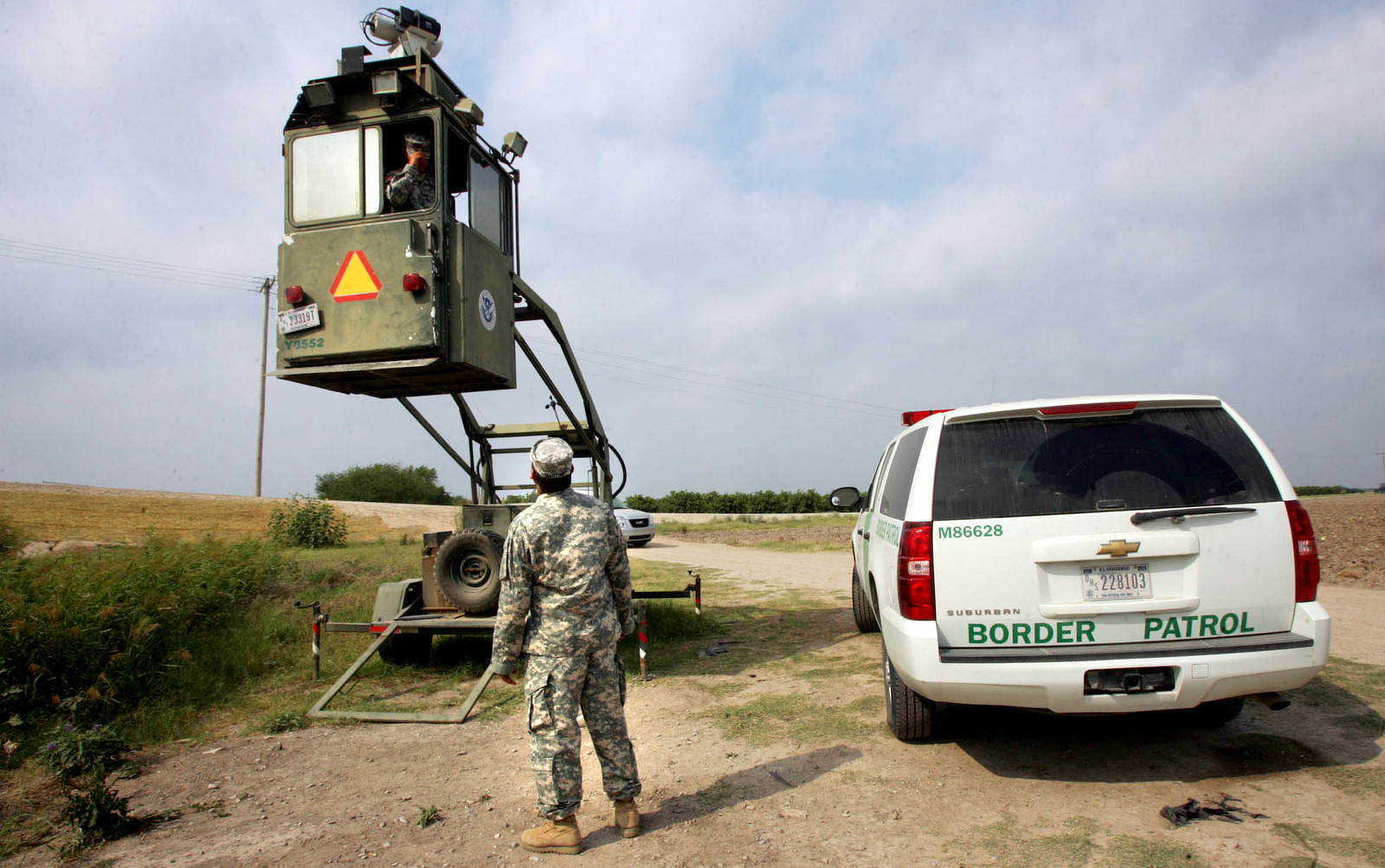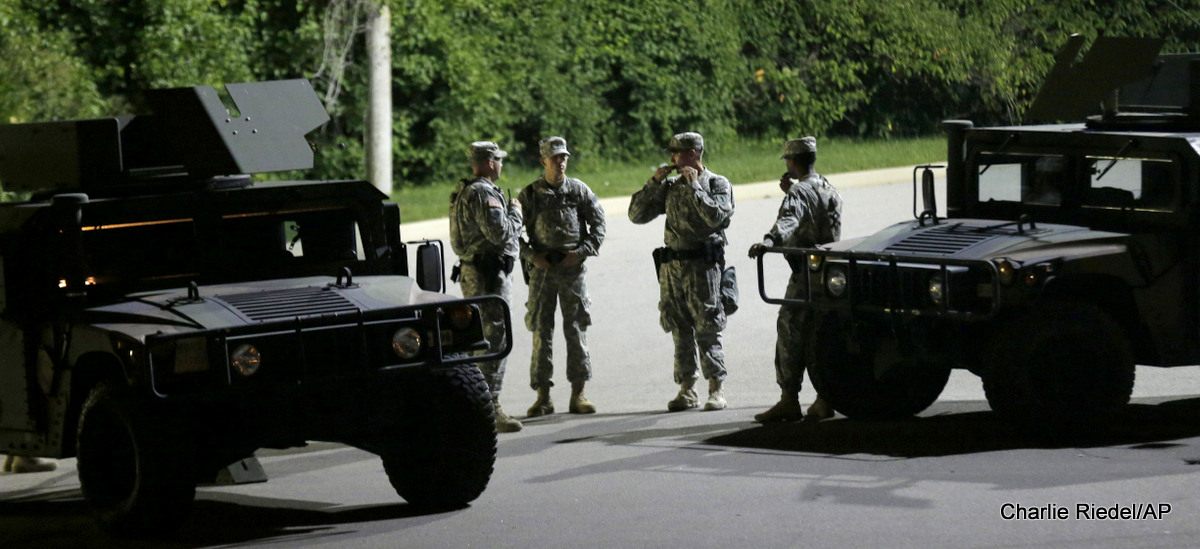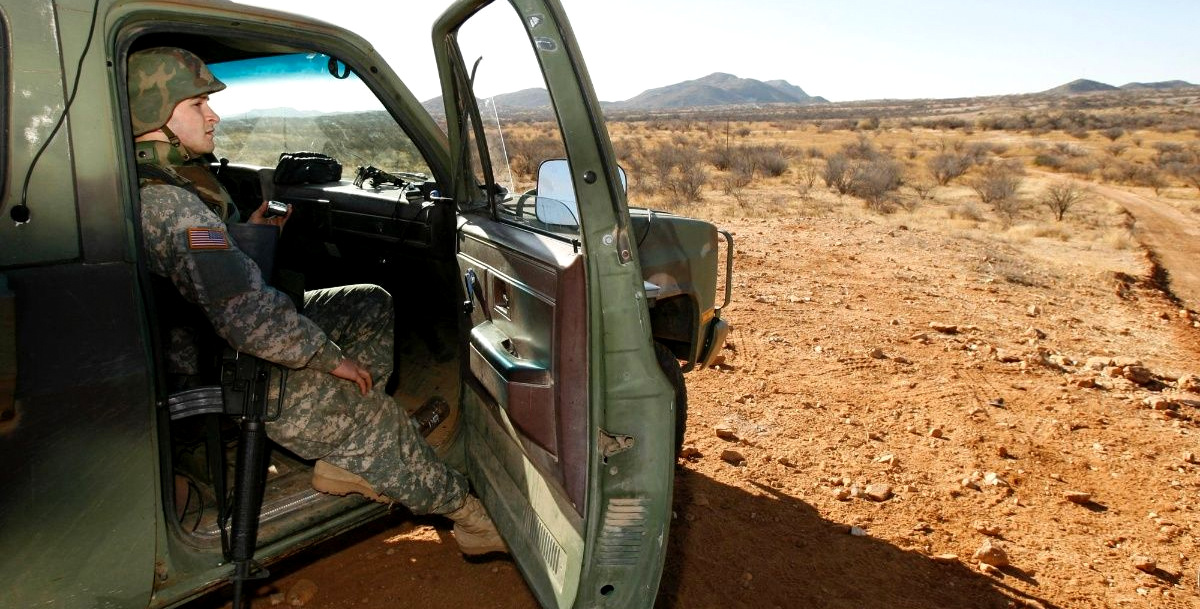WASHINGTON – After stirring concerns about “caravans” of Central American asylum seekers heading to the United States, President Donald Trump announced during a press conference Tuesday that he would deploy the National Guard to the U.S.’ southern border to strengthen its protection. “Until we can have a wall and proper security, we’re going to be guarding our border with the military,” Trump told reporters, while offering few details of the specifics of that plan or on when the soldiers would be deployed.
Soon after, most media outlets played down the surprising news, noting that both Obama and George W. Bush had given similar orders to the National Guard that resulted in temporary deployments. Indeed, in 2006 and 2010 respectively, U.S. presidents ordered up to 6,000 and then 1,200 National Guard troops to support U.S. Border Patrol in controlling illegal immigration. Both of those deployments, however, were temporary. They also did not have the authority to perform law enforcement functions, like pursuing or detaining suspected illegal immigrants.
“Until we can have a wall”

A member of the National Guard checks on his colleague inside a Border Patrol Skybox near the Hidalgo International Bridge in Hidalgo, Texas. (AP/Delcia Lopez)
This time around, however, the deployment of the National Guard is very unlikely to be temporary and evidence suggests that the infamous “caravan” is being exploited to justify the long-term militarization of the southern border. Trump has claimed that the National Guard this time will remain in place “until we can have a wall.” Given that the spending bill Trump recently signed prohibits such a wall from being built – allowing only improvements to be made to existing fencing – that deployment is set to go on indefinitely until Congress revokes the portions of the spending bill that restrict wall construction, which seems unlikely, or until Trump leaves office, assuming his successor chooses to withdraw the National Guard.
Another indication that this deployment is intended for the long-term is the resistance Trump has met from officials in his own cabinet. Politico, for example, noted that Secretary of Defense James Mattis “did not want armed troops at the border” and Chief of Staff John Kelly had previously rejected the idea. If the only career military officials in Trump’s cabinet reject his plans to send troops to the border, it suggests that the circumstances and the plan this time are different from those that gave rise to the temporary National Guard deployments under Bush and Obama, which met no such resistance from the military itself.
Read more by Whitney Webb
- Here’s How John Bolton Could Sabotage the Korea Peace Talks
- If Israel Were Not an Ally, US Would Be Working to Overthrow its Government
- Bolton’s Regime-Change Mentality Includes Latin America Among His Targets
- Bad Track Record Gets Worse as New Whistleblower Outed by The Intercept
addition, Trump’s alarm over the “caravan” is likely overblown for several reasons. First, the “caravan,” consisting largely of Hondurans and Guatemalans fleeing U.S.-backed despotic regimes, “dispersed gradually and at the decision of its participants,” according to Mexican Foreign Minister Luis Videgaray, after the Mexican government intervened to pressure the group to disband. This means that it is no longer the illegal immigration threat that Trump has suggested.
Furthermore, illegal immigration is at its lowest level in 45 years, a phenomenon linked to Trump’s hard-line rhetoric on immigration. According to the Department of Homeland Security, the number of illegal immigrants is unlikely to decrease further “without changes to long-standing immigration policy.” Trump’s insistence on militarizing the border by hyping the threat from a group of asylum seekers when illegal immigration is historically low — especially considering that such “caravans” are a regular occurrence — makes sense only as a purely pretextual move.
The militarization of the southern border is unlikely to further lower the number of immigrants illegally crossing that border, as past militarization efforts at the border, such as Operation Gatekeeper, only increased the number of deaths incurred by those trying to cross the border by routing them through unsafe terrain. However, they failed to stop the flow of immigrants overall. Interestingly, Trump’s current proposal – like Operation Gatekeeper – coincides with his efforts to renegotiate the North American Free Trade Agreement (NAFTA), a major factor affecting the flow of illegal immigrants into the United States from Mexico.
The slippery slope to a police state?

Missouri National Guard troops stand next to Humvees while responding to the Ferguson protest over the killing of Michael Brown by police, Aug. 18, 2014.
In addition to concern regarding how long National Guard troops may be on the border is concern that such a deployment would dramatically undermine existing laws intended to prevent the U.S. from turning into a military dictatorship. The Posse Comitatus Act of 1878 restricts the U.S. military, save for the Coast Guard, from carrying out civilian law enforcement tasks on U.S. soil. It also does not apply to the National Guard when acting in a law enforcement capacity within its own state when ordered by the governor of that state or an adjacent state if invited. It is intended to keep the line between military and police clearly marked, as their merger would be the harbinger of a police state. It is notable and disturbing that the government, since 9/11, has repeatedly violated it.
If National Guard troops under Trump round-up immigrants on U.S. soil who are suspected of violating U.S. domestic laws, the Posse Comitatus separation of functions could be gravely endangered. If the National Guard assumes law enforcement functions on the southern border, the U.S. military assuming control of law enforcement functions elsewhere is a just a stone’s throw away. That, combined with the increasing militarization of police forces in the U.S., could be enough to make the once clear line between policeman and soldier indistinguishable. With each non-enforcement of the Posse Comitatus restrictions, the U.S. moves closer to acceptance of a de facto assumption of the domestic policing function by the military — also known as a police state.
Top Photo | Associated Press Photo/R. Franklin
Whitney Webb is a staff writer for MintPress News who has written for several news organizations in both English and Spanish; her stories have been featured on ZeroHedge, the Anti-Media, and 21st Century Wire among others. She currently lives in Southern Chile.
The post Trump Hypes ‘Caravans’ of Asylum-Seekers as Pretext to Militarize US Border appeared first on MintPress News.
